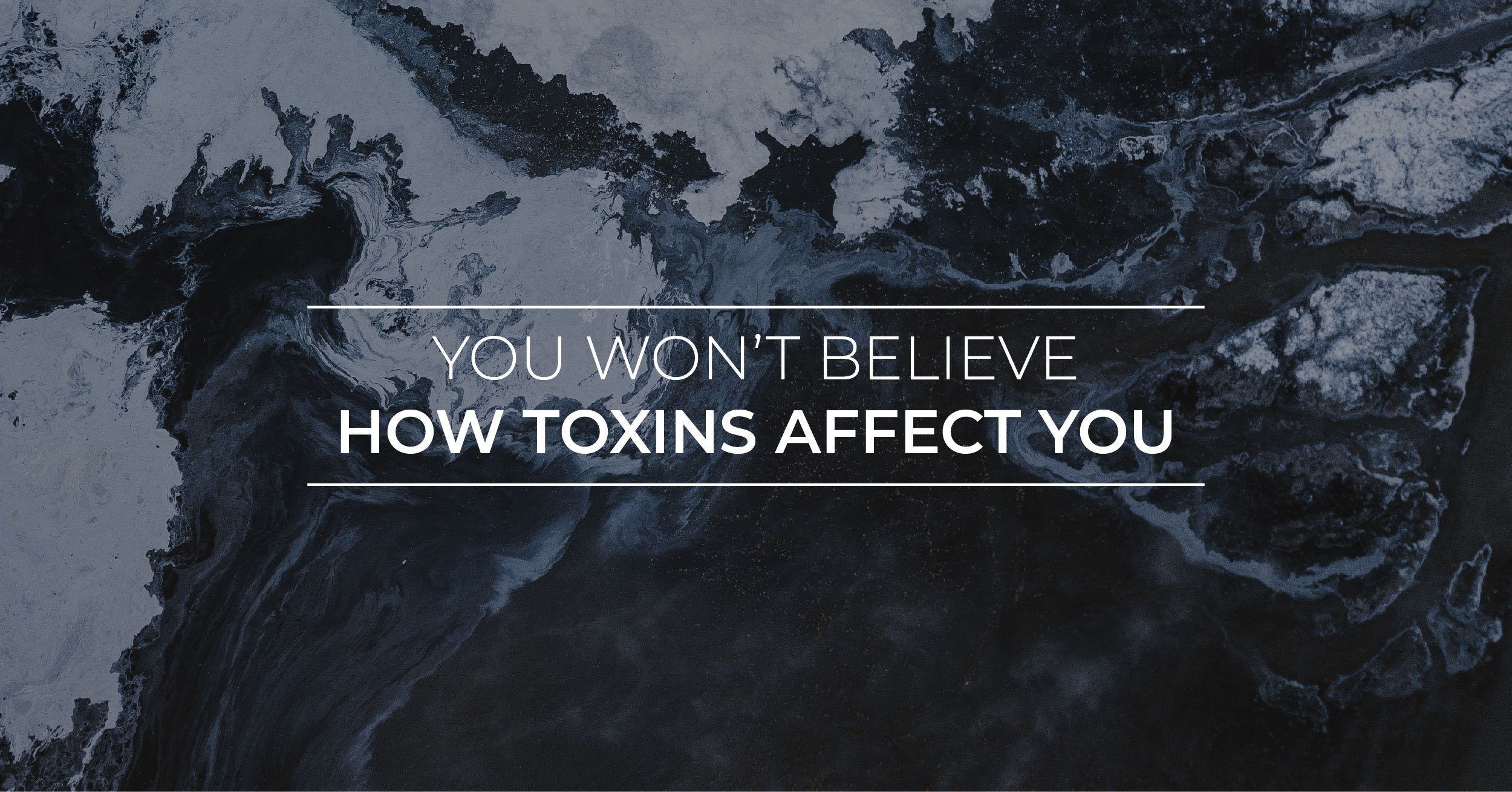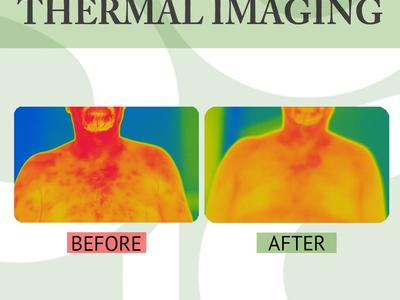The Trouble With Toxins
The Poisonous Effects of Modern Living
As we go about our daily lives, we are exposed to more than 700,000 toxins a day on average – and it simply isn't good for us.
Dangerous chemicals lurk in the air we breathe, the water we drink, the food we eat and the homes we live in.
From perfumes and cosmetics to cleaning products and plastics, modern life has exposed us to toxins on an unprecedented scale and, if the science is to be believed, continuous exposure to dangerous toxins accounts for about 6% of the world’s disease burden, including chronic diseases, cancers, neurological and developmental disorders. Some 8% of deaths have also been attributed to chemicals.
According to Eurostat, more than 300 million tonnes of chemicals were consumed in the EU in 2018 and more than two thirds of this amount were chemicals classified as hazardous to health.
Thankfully, the human body is an incredible piece of machinery that works hard to counteract the insidious downside of modern life, but the fact is the body can only cope with so much and when it gets overloaded the problems start.
The Toxins We Are Dealing With
Among the chemicals that can accumulate in human tissues are per- and polyfluorinated alkyl substances (PFAS). The so-called forever chemicals.
PFAS are present in drinking water, food, antibacterial products, packaging, dust, cosmetics, textiles and other consumer products.
In warnings given by the Agency for Toxic Substances and Disease Registry, the main products that may contain PFAS include:
- Some grease-resistant paper, fast food containers/wrappers, microwave popcorn bags, pizza boxes, and candy wrappers
- Stain resistant coatings used on carpets, upholstery, and other fabrics
- Water resistant clothing
- Cleaning products
- Personal care products (shampoo, dental floss) and cosmetics (nail polish, eye makeup)
Paints, varnishes, and sealants.
How Toxins Damage the Body
One of the main dangers of a toxic overload is the poisoning of enzymes – the proteins that help speed up metabolism or chemical reactions in the body. When enzymes are damaged it basically prevents the body from functioning properly. It stops the production of haemoglobin in the blood – which can accelerate aging – it decreases or depletes energy production and lowers protection against oxidated stress.
As these normal functions fail, the risk of contracting chronic disease increases.
The effects of human exposure to PFAS include kidney cancer, testicular cancer, thyroid disease, liver damage and a series of developmental effects affecting foetuses.
Type II toxins, such as haemolysins and phospholipases, destroy host cell membranes to invade and interrupt host defence processes within the cell.
And while the exact cause of autoimmune disorders is unknown, it is widely believed that toxins play a major part.
Depending on the chemical, longer-term health effects of a toxic overload might include:
- organ damage, especially to the liver
- weakening of the immune system
- development of allergies or asthma
- reproductive problems and birth defects
- effects on the mental, intellectual or physical development of children
- cancer
Signs of a Toxin Overload
One of the first signs of toxic overload will be the body’s attempt to expel them. This can manifest as diarrhoea, vomiting, sneezing, coughing, excessive urination, a sore throat, heartburn, nasal congestion or a runny nose. Some people might also notice changes in their body odour, or unusually oily skin, as the body tries to purge toxins through pores.
As toxins accumulate, the effects become more severe and may include poor circulation, swelling, headaches, migraines, stress, anxiety, depression, allergies, poor skin, thrush, arthritis, fatigue, constipation, obesity, cellulite, gout, digestive disorders, respiratory disorders, insomnia, bloating, wind, skin problems, an impaired immune system, brain fog, hair loss, fatigue, brittle toenails and bad breath.
While these are generally short-term effects of a toxin build-up, long-term effects can lead to harmful, even life-threatening, consequences.
How to deal with a Toxic Overload
As the name might suggest, the most effective way to help your body if it’s struggling with a toxic overload, is detoxification.
Of course, this process is not as simple as it might sound and a detox programme should really be developed and overseen by an expert to get the best results.
The primary objective in any detox programme is to prepare the body for detoxification by clearing the channels that allow it to flush out toxins.
If you imagine your organs as drainpipes, they need to be unclogged and open because detox is actually the process of driving toxins out of the body through these organs. For this reason, drainage is imperative to wellness.
“Drainage is the process of organ preparation,” explains our resident Naturopathic Practitioner and Wellness Coach Dina Gavarieva. “A proper detox procedure requires time, effort and a lot of patience. You cannot start detoxing out of the blue, you need to prepare your body for detox.
“If the detox is done without preparing the organs, people will experience headaches, nausea, feelings of being unwell, chills and flu-like symptoms because they are actually mobilising toxins in their tissues that cannot be excreted because the organs are still clogged. So, the toxins will redistribute in the body. This way of detoxing is incorrect and unsafe.”
At Neomed we employ a number of therapies and treatments designed to combat toxin build-up including:
- Lymphatic drainage massage to increase the flow of lymph and remove toxins
- Nutritional advice
- Vitamin infusions that enable powerful antioxidants to get to work instantly
- Ozone saunas
- Far infrared sauna
- Detox body wraps and scrubs
- Mud wraps to detoxify the skin, eliminate toxins, increase immunity levels and boost the lymphatic system
- Castor oil packs to support lymphatic system drainage
- And neti pot, which is a popular form of nasal irrigation.
For more information on our detox packages or to speak to one of our experts call +357 2525 9988.







